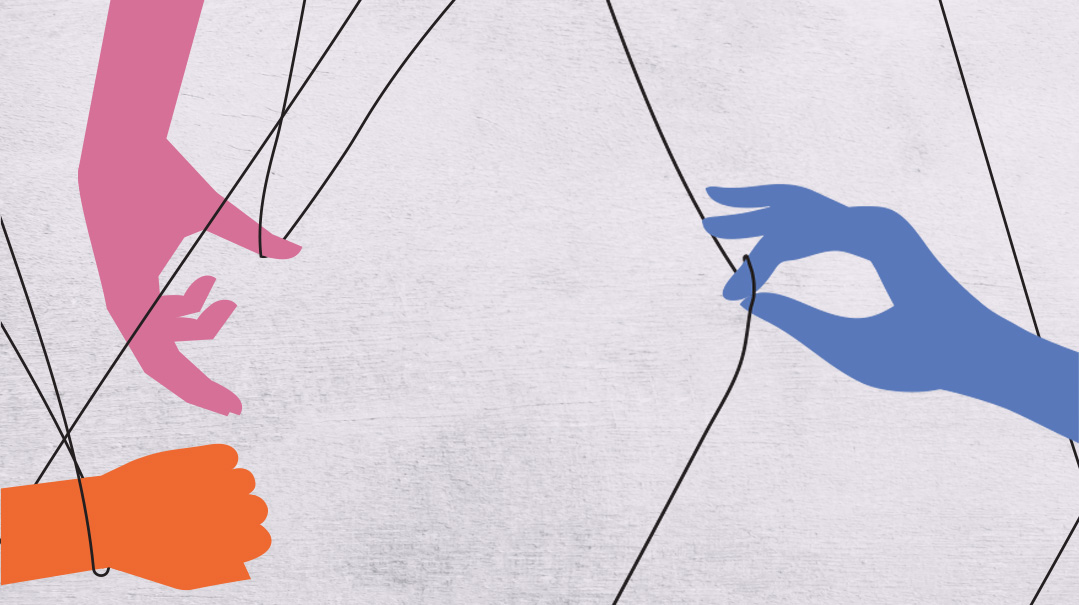Fallout: Chapter 12

“I come here a lot on Sundays. It’s a great place to think about what I want from life — and what I don’t want from it”

March 1964
“C’mon, Mut, get your head out of those bones, and move around a little.”
Mutty looked up from the anatomy textbook. Artie was standing over him, casually flipping his Frisbee up and down.
“Where you headed?” Mutty asked.
“Taking the train home. Quick visit to Mama, cheer her up, and then,” he added with a broad grin, “Dad said I could take the car to Central Park.” He stretched his broad shoulders. “Take out the kinks a little, after a week of trying to hold this place together with string and bubble gum. I’m taking my Frisbee, should be fun.”
Fun? Mutty looked at his brother, his feelings a mixture of longing and, yes, just a slight pang of envy. Artie was sure enjoying this forced exile to the hotel, spending hours with Uncle Moe, filling up cracks, reinforcing the exterior, replacing broken window shades and generally giving the old lady — the Freed Hotel — a facelift. And Mutty? When he wasn’t studying on the subway as he traveled to Columbia, he was listening to lectures in chilly classrooms, poring over textbooks in his stuffy little room in the hotel, or filling his head with test questions at the MCAT prep course that Dad had suggested he take.
He slammed the textbook shut with such force it sent a fine cloud of dust motes into the air. He’d been so busy he hadn’t seen his family in almost two weeks; he missed his parents, his little brothers and sister, his room. He would love to drop in and say hi. And the thought of a run on the grass in Central Park on this unusually warm Sunday was appealing. Mostly, he admitted to himself, the idea of being chauffeured in Dad’s Cadillac, enjoying the smooth ride and deep leather seats, was too tempting to resist.
“Okay, Artie, we’re on. Let’s get out of here.” The two young men grinned, shouted a goodbye to their grandfather and uncle, and left the hotel behind.
“Kind of weird, no?” Artie asked, as they walked out of their Boro Park home after their hour-long visit. He put the key into the Caddy’s ignition and waited for the quiet sound of the engine turning over.
In the passenger seat next to him, Mutty nodded. Weird, yes, to see Mama in bed, reading a Marcus Lehmann book to the twins while little Ruchele lay next to her, cuddling with her under the blanket, with Dad hovering around, offering Mama a drink and fluffing up her pillows. Mama, who was always so busy taking care of all of them, now being taken care of.
“A doctor’s eyes are his most important medical instrument,” Dad had once told him, as they discussed Mutty’s future as a physician. “Look at the patient, at the color of his face and lips, at the set of his shoulders and the fingers on his hands. They’ll tell you more than your stethoscope ever can.”
So Mutty tried looking at his mother, not with the eyes of a son, but with the gaze of a future doctor. Her face was pale, her blue eyes rimmed by darkish shadows. Her smile, as she kept the children spellbound with her reading — nobody read a story like Mama! — was tender and real, but he also noticed how tightly she held on to the book, her fingertips tapping nervously on its cover.
“Yup,” he said, as the Caddy sailed smoothly over Brooklyn’s potholed streets. “Very weird.”
Like groundhogs peeking out of their burrows at winter’s end, thousands of pallid New Yorkers had climbed out of their steam-heated homes to enjoy the mild March sunshine on this Sunday in Central Park.
The two young men ambled through the park, chatting. “Someone told me that people started playing Frisbee in the 1870s,” Artie told Mutty, as he gently flipped the orange disc from one hand to the other. “Guys from Yale would buy pies from a bakery called Frisbie’s. When they finished the pie they would throw the empty pans to each another, screaming, ‘Frisbie!’ to warn off people so they wouldn’t get hit in the head. And now, you’ll see — everybody’s playing it!”
As they walked toward Sheep’s Meadow, the area in the park where Frisbee aficionados spent Sunday afternoons, they heard the sound of an organ. A cheery sound, with happy memories: When the children were small, the Levines would spend a few weeks every summer in the Freed Hotel, and Mama and Dad often took them to the carousel on the boardwalk.
“C’mon, Artie, let’s go check it out. Just for a minute.” Mutty laughed. “I haven’t seen a merry-go-round in ages.”
Turning left, they were soon standing in front of the park’s large, vintage wooden carousel. Feet tapping in rhythm with the calliope music, they watched the children on the gaily painted horses waving madly at mommies and daddies standing nearby. There were a few adults, too, on the carousel, riding up and down on the jumpers: a father holding a little boy on his lap, a few giggling teenagers, and one redheaded girl….
“Hey, look Artie, it’s Miss Burton!”
And indeed, there was Marjorie Burton, swinging herself off the gold-and-red wooden horse, jumping lightly from the merry-go-round as it slowly came to a halt, and then standing in front of the two young men.
“Aren’t you guys a little old for merry-go-rounds?” she asked, grinning.
“We can ask you the same question, Miss Burton,” Artie answered, returning the smile.
“I come here a lot on Sundays,” she answered. “It’s a great place to think about what I want from life — and what I don’t want from it.”
Artie raised a quizzical eyebrow. “Don’t want?”
The three of them began walking slowly away from the carousel. “That’s right,” Marjorie said. “Merry-go-rounds are fun for kids.” She laughed, but something in her eyes seemed to darken. “But really, all you’re doing is following the horse in front of you, and letting some half-asleep carousel operator decide how fast you’re going to go, and when you’re going to stop. And that,” she said, with a determined shake of her red hair, “is what I’m planning not to do.”
“So what are you planning to do?” Mutty asked. The girl was certainly unexpected. Intriguing.
“That is for me to know—”
“And for you to find out,” Artie finished. “Well, right now, all we’re planning is to play a little Frisbee. Would you like to watch?”
“Thanks, but no thanks. I told your mama I’d be back in time to give the kids supper, and I want to still say hello to the monkeys.”
“Monkeys?”
“In the zoo.”
“The zoo?”
“That’s right. Another place where I can see what I don’t want out of life.” Her voice had a hard edge to it. “No one, but no one, will put me in a cage.”
With that, she waved merrily and walked away, leaving Mutty and Artie exchanging bewildered glances.
Later, as they drove home tired and sweaty from an afternoon in the park, Mutty wasn’t thinking about Artie’s expert throws or his own awkward catches. He wasn’t even thinking about the upcoming medical board exams.
He was musing about merry-go-rounds and monkeys.
Marjorie, back from Central Park, tapped on the bedroom door and walked in. “C’mon kids, time for dinner!”
David, older of the twins by five whole minutes, spoke. “Please, Margie, we’ve only got a few chapters left.”
“Yeah,” his brother Johnny echoed. “And it’s a really cool story. All about Akiva, who didn’t know anything about learning or Torah or mitzvos, and—”
“—and he learns Torah from a wet rock,” Ruchele piped up.
The boys giggled, Abe laughed out loud, and Annie managed a smile, before a wave of nausea overcame her. Abe, who’d left all the paperwork he usually did on Sundays to keep a careful eye on his wife, immediately noticed her distress. He gently picked Ruchele up from Annie’s side, and swung her over toward Marjorie.
“Enough, kids. Mama will finish reading the book with you tomorrow after school. Now it’s off to dinner. Miss Burton, what goodies have you prepared?”
“I made chicken salad drowning in mayo from the Shabbos leftovers. And kids, you can have it with pickles and spaghetti!”
There was a general “Yay!” from the children, who flew out the door, shouting and pushing.
Abe broke the sudden silence that had fallen upon the room. “Looks like Marjorie has figured out that kids don’t like gourmet French cuisine.” His face grew more serious. “Sweetheart, are you okay with this? Because if it’s not working out, your health is more important than anything else, no matter what your father says.”
Annie nodded weakly. “No, Abe, it’s okay.” Through the door they could hear sounds of chickens clucking and cows mooing: Marjorie, once again entertaining the children. Annie spoke so quietly, Abe had to bend down to make out the words. “The kids… they love her. But Abe…” She broke off for a moment. “I’m so tired of feeling sick and weak and being stuck in bed with Pesach on its way.”
“Is that what you’re upset about? Look, I had Mrs. Schwartz in the hotel explain to Marjorie all about Pesach cleaning, and while the kids are in school she’ll start. Artie will come in with Moe on Sunday to help with the heavy work, and I may even get my hands dirty with them. You’ve got that cleaning woman who comes in on Thursdays. I’ll ask her to give us some more hours. And Charlie Samuels says the nausea should pass soon. All you have to worry about is keeping you and our little baby well and healthy.”
Annie gave him a grateful smile. “Thanks, Abie. Now go down and eat something with the kids. I’ll just rest over here.”
But when Abe, after making sure she was comfortable, gently closed the bedroom door behind him, Annie did not go to sleep.
The tears poured down her face as she wept, endlessly and hopelessly.
To be continued…
(Originally featured in Family First, Issue 856)
Oops! We could not locate your form.



